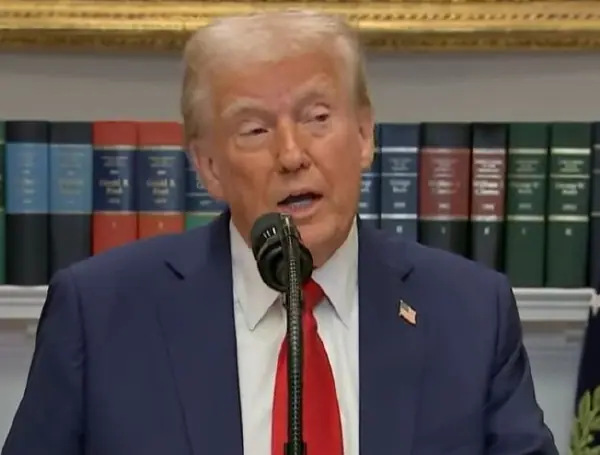In a move aimed at alleviating economic pressure on domestic automakers, the Trump administration announced on Tuesday that it will provide reimbursements for tariffs paid on imported foreign auto parts. This decision follows extensive discussions with industry leaders who had voiced significant concerns about the financial burden imposed by the existing 25% tariff rate.
President Trump is expected to sign an executive order later today, authorizing reimbursements of up to 15% of the tariffs already paid on imported parts used in vehicles assembled in the United States. This relief will take effect on Saturday and will gradually decrease to 10% next year.
READ: Corporation For Public Broadcasting, Board Members Sue Trump Admin Over Purported Removal
The administration clarified that these auto tariffs will not be compounded with other levies, such as those imposed on steel and aluminum, with the exception of tariffs on goods imported from China.
The Wall Street Journal initially reported the administration’s concessions on Monday night, highlighting the growing pressure from the automotive industry.
Commerce Secretary Howard Lutnick addressed the administration’s decision, stating, “The key was that the automakers said that it will take them time to ramp up and produce their full supply chains domestically and that seemed like a very practical point of view.” He added, “In conversations with them, we discussed how much would they hire, how much would they build, and what does America get in exchange for giving you this ramp time?”
According to Lutnick, both domestic and foreign automakers presented compelling arguments, asserting that the tariff relief would lead to a “dramatic increase in production — both extension of production lines, new factories coming in.” He emphasized that this increased production would be the “payoff to America if the President would give them this latitude for the next two years.”
READ: Treasury Secretary Scott Bessent Bets Big On Tariffs, Dismisses Manufacturing Fears
The administration’s decision reflects a recognition of the significant challenges faced by automakers in adjusting their supply chains in response to the imposed tariffs. By providing temporary relief, the administration aims to mitigate potential economic damage while encouraging increased domestic production and investment in the automotive sector.
The executive order is anticipated to provide much-needed respite for automakers navigating the complexities of international trade and supply chain adjustments. The industry will be watching closely to see how these policy changes impact production and investment in the coming years.
Please make a small donation to the Tampa Free Press to help sustain independent journalism. Your contribution enables us to continue delivering high-quality, local, and national news coverage.
Connect with us: Follow the Tampa Free Press on Facebook and Twitter for breaking news and updates.
Sign up: Subscribe to our free newsletter for a curated selection of top stories delivered straight to your inbox.
